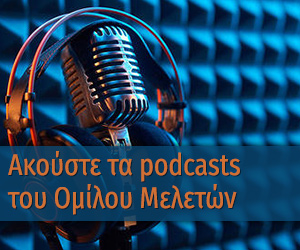1. By this time, summer 1947, Ouspensky was physically a frail old man who, in addition, had acquired new unhealthy habits. His walking had become very difficult, he often had little or no appetite and more often stayed awake and active at night and slept in the day. But he did walk persistently albeit with difficulty…
His close companions saw his peculiar antics and “expressed it to themselves that he was ‘experimenting with death'” (p23). This was in April.
Later that evening “they were convinced that he expected the end”. Another subjective judgment on their part. And when the next day Ouspensky emerged lively and in good spirits, “he had, it seemed, deliberately turned his back on death.” The writer(s) don’t want to realise that there is very little objectivity in their views.
Apart from such perceptions they also thought that, whenever he talked about the past in Russia or looked at pictures, Ouspensky was reconstructing recurrence. And to R. Collin Smith it seemed that Ouspensky was achieving something positive from these “experiments” (ch5, p39).
2. Ouspensky had to a large degree turned the night into a day having lunch, for instance at midnight. He would also have them drive him around searching for a specific but elusive place during the night. Naturally, as a consequence, he would sleep very little and often during the day.
His speech was incoherent. After an abortive attempt to return to America, described at length, he again talked of going there – but not before the end of October. Then he began to talk about his friend Plavin in Sydney and a trip to Australia. (The writers take it all as allegories to an unknown destination – of the spirit?)
He would ask for “a piece of string” or perhaps “a thing” – a yard and a half long – to be bought at a shop near Charing Cross. But he laughed and dismissed the matter when asked to give more details. (R. Collin Smith thought that the “apparent forgetfulness and misuse of words was deliberate”.) Or Ouspensky would cry out “Get it” in the middle of a meal. Or he would ask “Who are you?” But he would not be satisfied with their responses and he would ask each to get cigarettes, wine, a handkerchief etc; yet not these things! Surprisingly the devotees see neither senility here nor confusion.
3. The writers display throughout astonishing dishonesty. Behaviour, symptoms, utterances and acts that would in any ordinary conditions and with any ordinary reasonable people (even saints and mystics) would pass as signs of dementia or inconsiderateness of others in this case are presented as highly spiritual, esoteric, if mysterious, manifestations.
And chapter 8 opens with this extraordinary vapid statement: “The period after September 17th – 18th becomes more and more difficult to describe in an objective way. Because at this point it became necessary for those who were in close touch with Ouspensky to admit the existence of miracles.”
This is shameless writing. Very little in the seven preceding chapters can objectively (=impartially) be said to be objective (=impartial).
4. Is it really miraculous for Ouspensky to sit in the car and not budge in the early hours before dawn or to get out after pressure and then rush back inside? Yes, it may have been an “experiment” and a test for his devotees, but was it “miraculous” for the taxi-driver who did not know what to do and for the car-proprietor who would come to rescue his employee? (Ch5, p35, 37; Ch6, p41.) No consideration for the outsiders?…
I shall not examine the laborious preparations for the journey to America and the drive to Southampton to embark on the ship. All the luggage and even Miss Q. got on the ship but Ouspensky was unable to walk up the gangway. And so they all returned to Lyne Place. (The writers again make this a test and find among Ouspensky’s incoherent remarks one or two that “indicated” he did not really intend to go!)
The first chapter which is more biographical-historical has also gaps that tend to cover up unsavoury events. Ouspensky’s first meeting with his future wife is mentioned but nothing is said of his passionate affair with Anna Butkovski before 1915. Then, they write about intensive work at Essentuki in the summer, 1917, but not that Ouspensky had “separated” the system from Gurdjieff and was preparing to abscond. Nor do they mention that during one of Gurdjieff’s lectures in London (1922), Gurdjieff accused openly Ouspensky that he had neither permission nor the capacity to expound Gurdjieff’s teaching. And on p10 they don’t say that Mme Ouspensky preferred Gurdjief, was staying as a student at the Institute and only at about 1928 was sent to England from France by Gurdjieff himself!
All this can hardly be designated as objective history. And Ouspensky can be excused as senile and very ill, but what of the writers?


